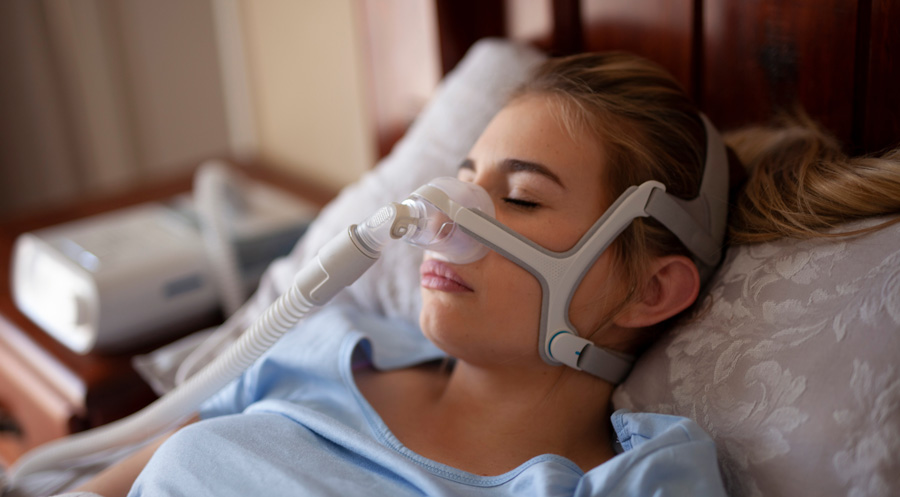Philips Dreamstation® CPAP & BiPAP
Philips Respironics has recalled millions of units of its Dreamstation® continuous positive airway pressure (CPAP), bi-level positive airway pressure (BiPAP), and mechanical ventilators because of possible carcinogenic and toxic effects of a foam used in the devices that can escape as a gas or particulates and be inhaled or ingested by CPAP users. New testing has shown that the polyester-based polyurethane (PE-PUR) sound abatement foam component in more than three and a half million Phillips Respironics machines has been found to break down over time. When this degradation occurs, the foam can break apart and the particles enter the device’s air pathway and be ingested or inhaled by the patient.
Philips is a multinational conglomerate whose electronic appliances and devices hold a ubiquitous presence in American households. In kind, their Philips Respironics division is one of the most trusted brands in sleep assistance via positive airway pressure devices. The company’s Dreamstation® line of Continuous Positive Airway Pressure (CPAP) and Bi-level Positive Airway Pressure (BiPAP) sleep therapy devices are some of the most popular on the market today.
Massive Recall
In a quite shocking move, on June 14, 2021, Philips Respironics announced a recall of more than 3.5 million different breathing therapy apparatus machines sold between 2009-2021 after new testing showed that these machines contained defective sound abatement foam made of polyester-based polyurethane (PE-PUR), which contains carcinogenic properties. This testing showed that the PE-PUR foam could degrade and break apart over time. The particles could then enter the device’s air pathway and be ingested or inhaled. Further recalls resulted in a cumulative number of more than 15 million breathing apparatus devices being recalled that had been produced since 2006.
The inhalation of these particles could then expose the patient to carcinogenic, chemical, toxic, and respiratory effects and issues. There is a heightened risk for the development of a myriad of cancer forms, most notably those in the kidneys, liver, or lungs. Airway and respiratory-related infections also pose a high risk.
Current Status Of Litigation
Formal coordination of lawsuits for this issue has come together quite quickly. In October 2021, the JPML issued an order to transfer more than 50 lawsuits that had been filed around the country to the Western District of Pennsylvania (MDL #3014), to be overseen by US District Court Judge, Joy Flowers Conti. With the understanding of the latency period associated with the development of cancer, this litigation will likely continue on for five years or more with more and more cancer-related injuries revealing themselves over time. In an April 2024 CMO, Judge Conti issued a new schedule calling for parties to create a plan for bellwether selection by the end of October 2024.
Update:
In September 2023, Phillips announced it would pay $479 million to resolve a class action medical monitoring suit. Phillips announced in April 2024 that it would pay $1.1 billion to resolve perhttps://www.nytimes.com/2024/04/29/health/cpap-breathing-devices-philips-settlement.htmlsonal injury claims filed by claimants who developed forms of cancer after inhaling the toxic particles.
Links:
- https://www.fda.gov/medical-devices/safety-communications/philips-respironics-cpap-bipap-and-ventilator-recall-frequently-asked-questions
- https://www.cbsnews.com/news/cpap-machine-recall-sleep-apnea/
- https://portal.ct.gov/AG/Press-Releases/2021-Press-Releases/Attorney-General-Tong-Urges-FDA-to-Expedite-Philips-CPAP-Replacement
- https://www.nbcconnecticut.com/investigations/cpap-machine-recall-leaves-sleep-apnea-patients-wanting-answers/2587365/
- https://www.insurancejournal.com/news/national/2021/10/12/636533.htm
- https://www.cbsnews.com/news/philips-settlement-cpap-recall-lawsuit-fda/
- https://www.nytimes.com/2024/04/29/health/cpap-breathing-devices-philips-settlement.html


